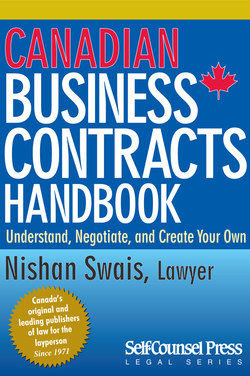Читать книгу Canadian Business Contracts Handbook - Nishan Swais - Страница 48
На сайте Литреса книга снята с продажи.
3.1a Remoteness
ОглавлениеIn order to be recoverable, damages cannot be too remote. Remoteness is a rather abstract legal concept so an example will help to explain its meaning.
Suppose your contract said that the forklift was in good working condition with functioning brakes, but it turns out that the brakes were defective. As a consequence, the buyer loses control of the forklift and drives it into a fuel storage unit. In turn, this causes an explosion, which causes a fire, which burns down the buyer’s place of business and injures several of her employees.
Putting the buyer in this position she would have been through an award of damages (i.e., awarding compensation) would in those circumstances clearly pose quite a challenge to a court. In addition to calculating the replacement cost of everything destroyed, there are the lost profits, personal suffering (of the injured employees), and lost work time, to name just a few of the types of losses one could imagine resulting from the defective brakes. In fact, the chain of loss or harm could conceivably go on forever, depending on how far along you decided to measure it. In trying to compensate persons for contractual breaches, courts exercise their judgment to draw a fence around what is compensable. That fence is the concept of remoteness.
To be compensable, damages cannot be too remote. That means that any losses would have to have been in the reasonable contemplation of the parties at the time the contract was entered into. In the example, that would mean that the parties would have had to reasonably contemplate that the forklift was going to be used around fuel storage units and perhaps result in an entire place of business burning to the ground if it were defective in some way. Is it reasonable for them to have done so? That is ultimately what a court will have to decide. That means uncertainty for both parties because nobody can predict with certainty what a court will do.
To help protect yourself against that uncertainty, it is important that you address the issue of liability in your contracts. Liability refers to your legal responsibility to pay damages. By defining this responsibility as a term in your contracts, it will go a long way to determining what damages you will ultimately be responsible to pay in the event that you breach a contract, and which damages will be too remote to be recovered. This is yet another reason you should learn how to write your own business contracts.
